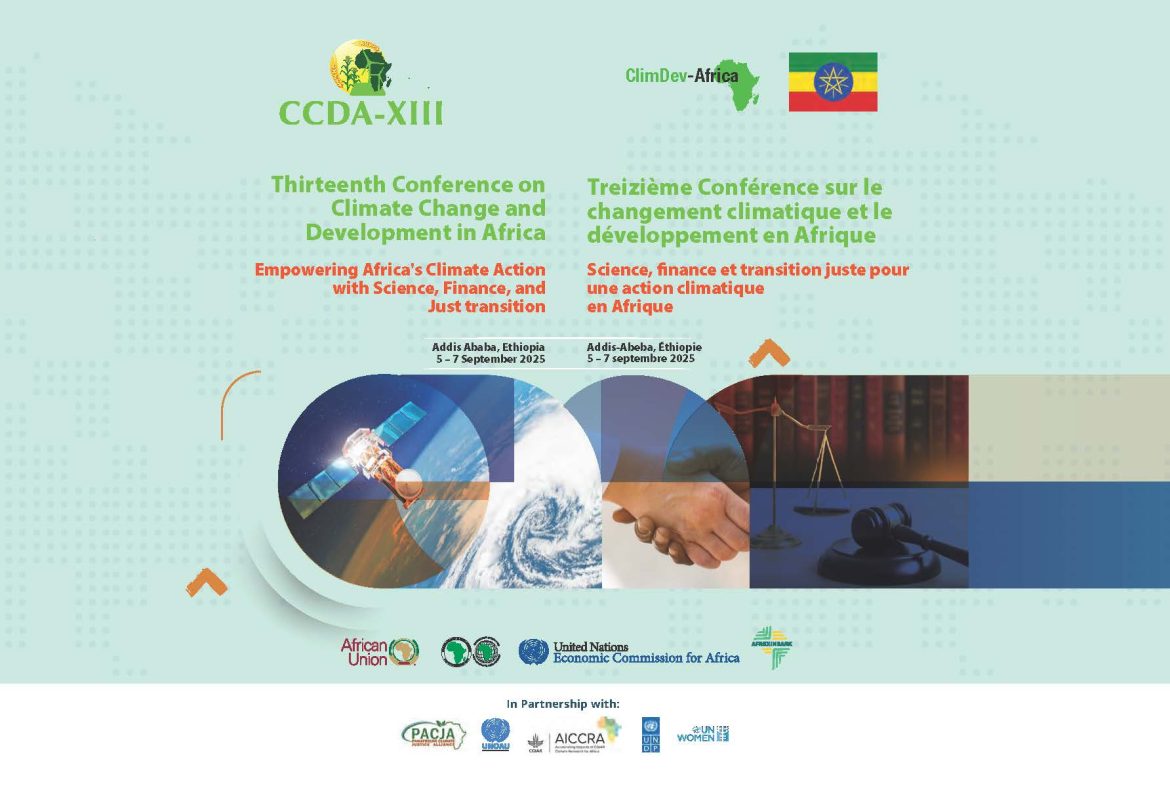By Muhammad Amaan
The 13th Conference on Climate Change and Development in Africa (CCDA-XIII) concluded in Addis Ababa, with a call for urgent action and scaled-up investment to advance Africa’s climate agenda.
Convened by the United Nations Economic Commission for Africa (ECA) in partnership with the African Development Bank, the African Union Commission, and the Pan-African Climate Justice Alliance, the three-day meeting brought together policymakers, scientists, civil society, and development partners.
Its outcomes were aimed at informing the Addis Ababa Declaration, a key technical input for the Second Africa Climate Summit (ACS2) and the foundation for Africa’s common position at the November COP30.
Closing the conference, Mr Claver Gatete, Executive Secretary of ECA, emphasized Africa’s readiness to move from commitments to action.
“This conference was not an end in itself. It is a bridge linking evidence with ambition, technical depth with political momentum, and Africa’s aspirations with concrete action.
“We came together to shape the foundation for the Second Africa Climate Summit and Africa’s common voice for COP30. And today, we close with resolve – with a coherent, investment-ready African climate agenda,” he said.
Mr Gatete outlined six priority areas to guide Africa’s climate response.
Adaptation & Loss and Damage: Adaptation must be central to global climate action. Africa cannot bear a US$160 billion adaptation gap alone. The Loss and Damage Fund must be made operational without delay, on fair and accessible terms.
Science & Data: Africa must bridge climate knowledge gaps through early warning systems, blending indigenous wisdom with modern technology, and strengthening the science–policy interface.
Climate Finance: Africa’s financing should not remain trapped in aid dependence. Reforming the global financial system is critical to reduce unfair borrowing costs, restructure debt, and scale up innovative tools such as green bonds and debt-for-climate swaps.
Just Transitions: Africa’s energy transition must be green and just. With more than 600 million people still lacking electricity, access must be expanded while pursuing sustainable growth.
Ecosystems: Africa’s ecosystems are global lifelines whose protection requires fair valuation and greater international investment.
African Leadership: Africa is not waiting to be acted upon. The continent is leveraging its resources, advancing solutions, and taking leadership in shaping the global climate agenda.
Mr Gatete concluded with a call for unity and determination, stating, “Africa is not waiting to be acted upon. We are shaping our destiny, leveraging our resources, and bringing solutions to the world.
“Together, we can ensure that these outcomes do not remain words on paper but translate into action that transforms lives across our continent.”
He also expressed gratitude to Ethiopia for hosting the conference and acknowledging its role as a diplomatic hub for continental dialogue and decision-making.
Also present at the multi-stakeholder meeting were representatives from the Government of Ethiopia, the African Development Bank and the African Union.




